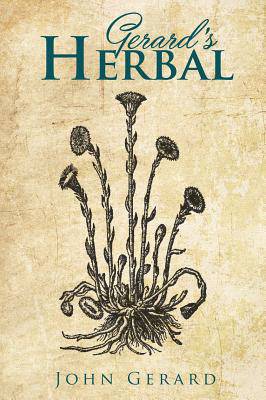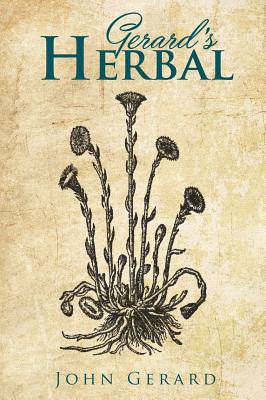
- Afhalen na 1 uur in een winkel met voorraad
- Gratis thuislevering in België vanaf € 30
- Ruim aanbod met 7 miljoen producten
- Afhalen na 1 uur in een winkel met voorraad
- Gratis thuislevering in België vanaf € 30
- Ruim aanbod met 7 miljoen producten
Zoeken
Omschrijving
John Gerard's 'Of the Historie of Plants', better known as 'Gerard's Herball' and first published in 1597, is one of the most delightful of Elizabethan herbals. Its glorious prose, the folk-lore steeping its pages, and all its quaint conceits about the "Vertues" of herbs, are known by reputation the world over. This is partly because no book on flowers or trees can be written without quotations from his glowing pages, but mainly because the work has won an unchallenged place of honour as the most delightful, fragrant, and refreshing of all old-time herbals, as it is by far the most amusing. When reading Gerard we are wandering in the peace of an Elizabethan garden, with a companion who has a story for every flower and is full of wise philosophies. He inspires us with his own simple faith in the healing virtues of herbs: we must agree that 'sweet Marjoram is good for those who are given to over-much sighing', that 'the smell of Basil is good for the heart, takes away sorrowfulness and makes a man merry and glad', and that Borage 'brings alwaies courage'. Gerard was born in Nantwich in 1545. The original edition is a huge book, with more than 1600 pages, so for this edition, working from the enlarged and amended edition of 1636 by Thomas Johnson, Marcus Woodward has extracted the essential essence of the book, preserving all that is most precious. No word has been altered, though all that is tedious or gross has been omitted. The book contains descriptions of nearly 200 plants, with details of their habitats, alternative names, and culinary and medical uses, and is illustrated with 114 woodcuts. Unlike other modern reprints of the 1927edition, this edition is reproduced full size in a sturdy laminated boards binding.
Specificaties
Betrokkenen
- Auteur(s):
- Uitgeverij:
Inhoud
- Aantal bladzijden:
- 326
- Taal:
- Engels
Eigenschappen
- Productcode (EAN):
- 9781906830724
- Verschijningsdatum:
- 20/07/2015
- Uitvoering:
- Hardcover
- Formaat:
- Genaaid
- Afmetingen:
- 178 mm x 254 mm
- Gewicht:
- 780 g

Alleen bij Standaard Boekhandel
+ 58 punten op je klantenkaart van Standaard Boekhandel
Beoordelingen
We publiceren alleen reviews die voldoen aan de voorwaarden voor reviews. Bekijk onze voorwaarden voor reviews.








